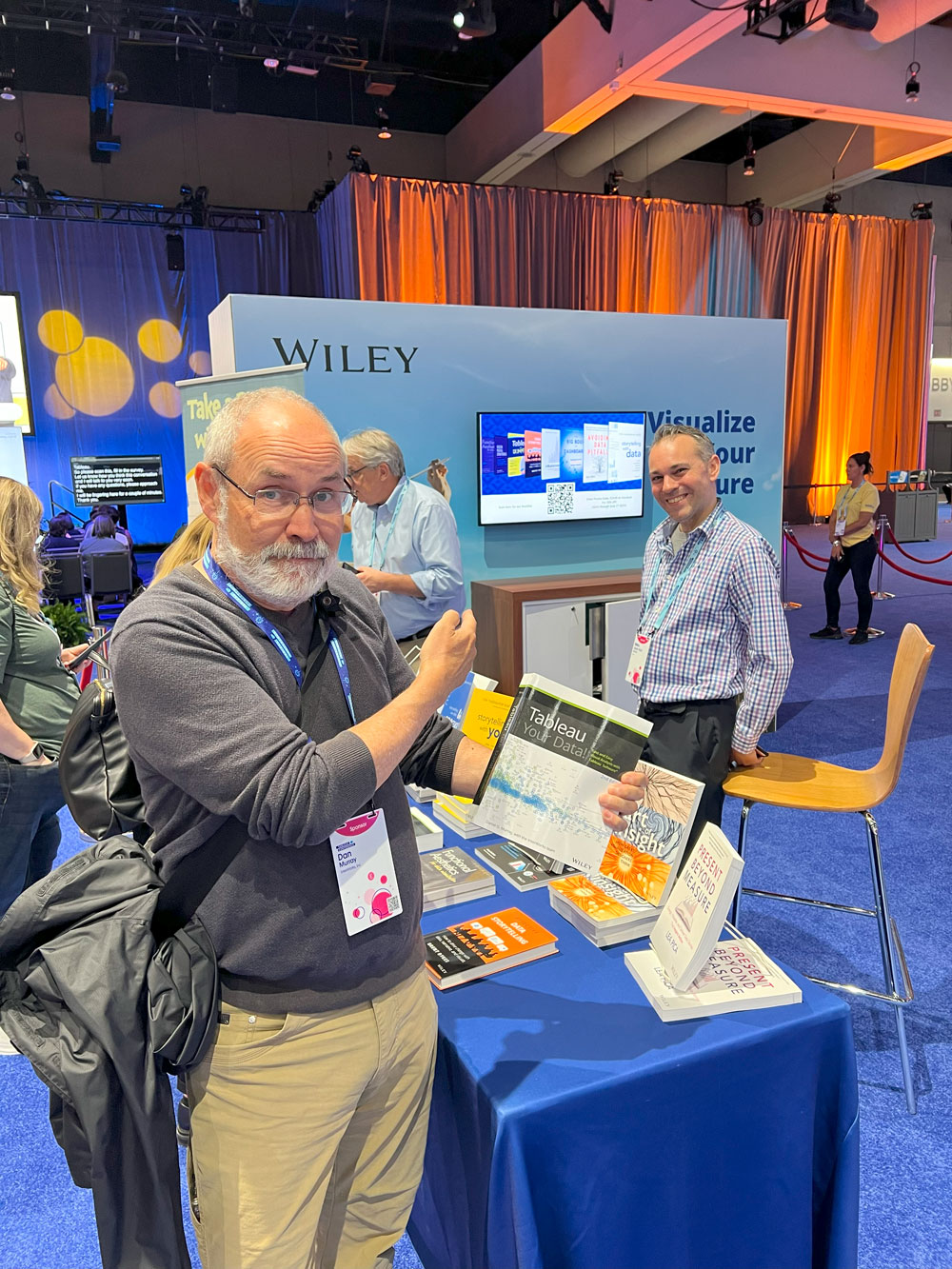I’ve attended every Tableau Conference since the first one in 2008, held at the Edgewood Hotel in Seattle. That conference included 150 people, 50 of whom were Tableau employees. At its peak, the Tableau Conference attracted over 20,000 people. It was quite an event. I believe this apex was reached around 2015. The 2016 event was the last one heavily influenced by Tableau’s founders. I’m happy to say this year’s event came closest to matching the video of the old “pirate ship” days.
Tableau’s Salesforce management team listened and learned during 2023. This year’s event focused more on Tableau than Salesforce, and the messaging was better. Tableau CEO Ryan Aytay’s keynote was more focused on customers and innovation. He also looked more like a Tableau CEO, which means he presented a more casual style on stage.
The customer-focused, innovative messaging was better and felt more inclusive. I was especially impressed by the portion of Ryan’s talk that included Walid Mahanna, the Chief Data and AI Officer from Merck, KGaA, Germany. Walid did a great job showing how Merck is using Tableau’s mobile capabilities.
Where I Spent My Time at Tableau Conference
Most of my time this year was split between the Executive Experience event, the conference dining room and in the display booths in the Data Village talking with different vendors. The Executive Experience is a conference inside the conference. It’s focused on messaging to senior executives. The sessions were split between keynotes and session breakouts. The goal was to share and listen about what is and isn’t working. Most of the talking was done by customers.
My time in the dining areas was focused on meeting as many people as possible and learning who was at this year’s event and why they came. My informal survey there indicated that 50% to 70% of the attendees at this year’s conference used Salesforce CRM first, then Tableau, meaning Salesforce successfully drove their customers to the event.
I also felt that many Tableau customers still had challenges with adoption. The problem isn’t the quality of the business intelligence software they use; it’s getting enough people to understand why they shouldn’t be dumping data tables into Excel. I strongly sense that companies are still not getting as much value as possible from their investment in BI tools. Adoption is a training and governance challenge.

Above: A fun stop by the Wiley booth where they are still selling my book, “Tableau Your Data!” after many years.
What Actually Is Data Governance?
Governance is a loosely defined term that means different things to different people. Here’s my operational definition of data governance and what it includes:
- Security: Clearly defined data access pathways that protect proprietary data without burdening data users with complicated or time-consuming barriers to entry.
- Accessibility: Finding the data source for their needs quickly and easily.
- Lineage: Clearly defining the data sources and where the data comes from.
- Provenance: Who owns the sources and who is accountable for their completeness, timeliness and accuracy?
- Understandability: The data should be presented in a form and environment most relevant to every user, department and business unit.
- Training: Every user should have access to relevant training material that increases their understanding and ability to utilize what they need to make better, more in-formed decisions with appropriate information.
- Senior-level accountability and understanding of the value of business intelligence tools, workflows, best practices and training.
InterWorks can help you with the governance challenge and add value to your investments. We have specific services to help you drive higher adoption and better ROI on your existing or planned investments, including areas like AI/LLMs. You can reach out to us here.
Final Thoughts on TC24
Overall, this was the best Tableau Conference since 2016. It reminded me of the old days and focused more on customer stories. Of course, Tableau had all the best sessions from the past, like Devs on Stage and the IronViz competition. This year, Salesforce management did its best to understand and deliver upon the legacy of Tableau’s culture. I’m happy to report that Salesforce management is doing a much better job of leveraging Tableau’s strong point: its community.

